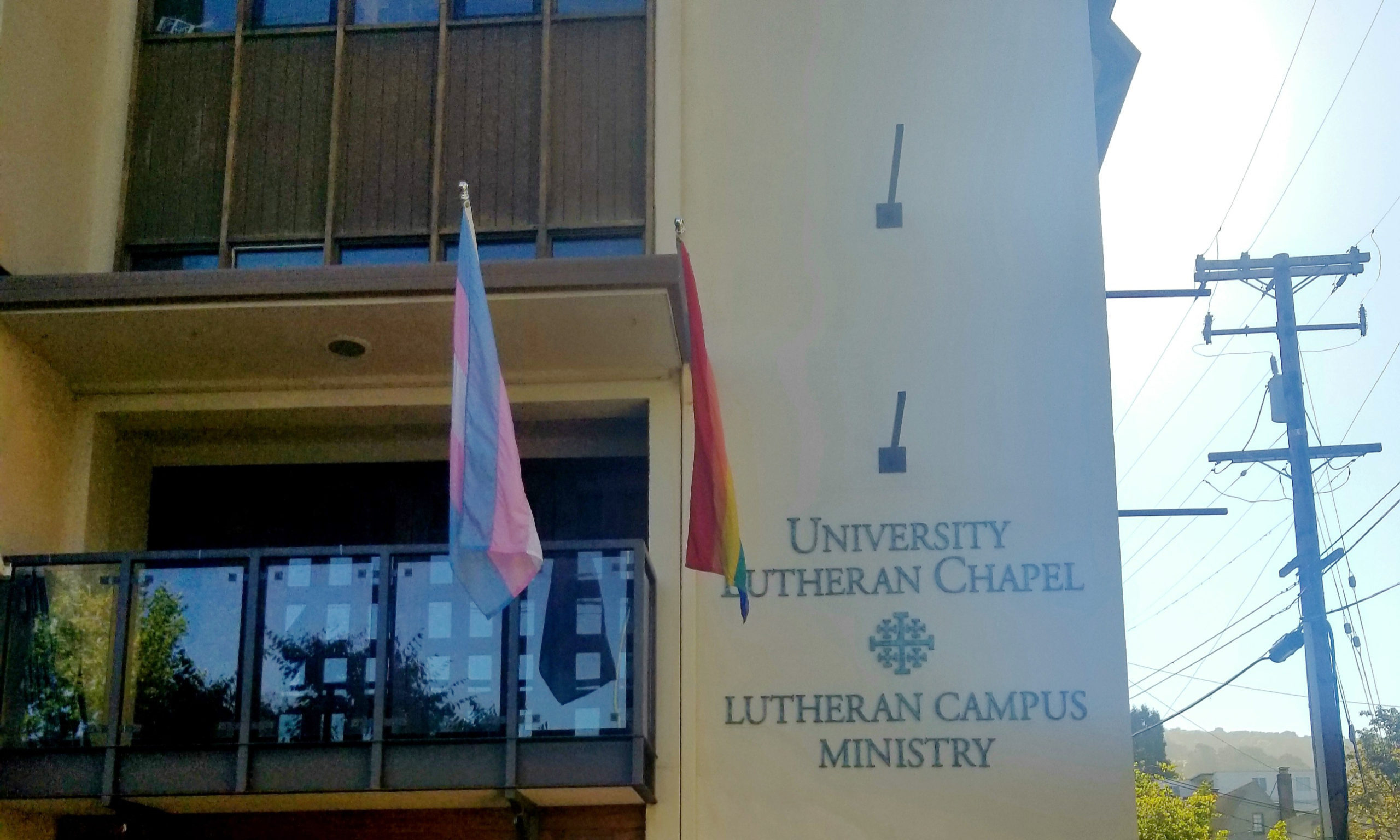By Alexa Quindlen
BERKELEY, Calif. ― The University Lutheran Chapel works with many immigration advocates, including the Interfaith Movement for Human Integrity Program, to create a safe, comforting environment for those enduring hardships because of their immigration status.
Congregation members Daniel Becker, Locke Schultz Jaeger and Judy Timmel talked with the Teen Observer staffers recently about the church’s as well as the city of Berkeley’s sanctuary history.
“It’s difficult to make ends meet and live life as other folks have the luxury to do,” Becker said. “We had a few nibbles from people considering sanctuary, but weren’t sure.”
Today the church aids one person on-site and works with others through various social agencies and such initiatives as pack-the-court, in which congregants fill the courtroom when an immigrant’s case is heard — hoping to show the judge that person has support.
Berkeley was one of the first cities to declare itself a sanctuary, and the current document declaring so remains remarkably similar to the original draft written in 1971.
Around the time of the first declaration, the church was beginning its work as a sanctuary space for those drafted during the Vietnam War who were conscientious objectors. The church hosted these soldiers, some of whom were students, until their cases were resolved (although some were later court-martialed). The church also was a sanctuary during the first Persian Gulf War. Over the last four years, Becker said, the church has recommitted itself to the sanctuary mission.
“The church was re-stating our willing … to reaffirm we’re a safe space, we’re a sanctuary,” he said. The church has one small apartment with a bed, shower and kitchen, a temporary living space.
“It speaks to the power of making a statement… our community is not going to stay silent,” Becker said about the importance of taking a public stand.
The church focuses on “accompaniment,” which Becker defined as a system of support and stability for immigrants wavering in hope and spirit.
“You’re walking with them, being with them,” Schultz Jaeger added. “We are a safe space that supports our citizens.” She’s the daughter of the Rev. Gus Schultz, the chapel’s longtime pastor until his death in 2007.
Congregants might go with undocumented immigrants to the grocery store, for example, or accompany them to see other family members. They’ve done letter-writing campaigns and guided those in needs to other groups who can help find lawyers to take their cases.
The congregation is small (about 70 members), although it fluctuates with the beginning of each new academic year in this college town. The members work with a broad coalition of those in the faith community, Schultz Jaeger said, including the East Bay Interfaith Immigration Coalition.
As for their efforts to not work with Immigration and Customs Enforcement, or ICE, the church again directs its attention toward peacefully challenging ICE’s actions outwardly and raising awareness for immigrants on how to handle a potential raid or deportation effort.
According to internal ICE guidelines, Timmel said, churches, schools and hospitals are considered “sensitive locations” to be avoided as best as possible. However, it is not illegal for ICE agents to enter these spaces.
The church has posted directions on what to do in the case of an actual ICE raid, and Berkeley as a city has declared that it is a sanctuary, meaning local law enforcement does not cooperate with federal immigration agents.
University Lutheran Chapel also displays its pride in their actions with LGBTQ+ and United Nations Flags.
The church includes its entire community in their discussions as to the progression of their movements. The safety and well-being of their congregation is the utmost concern, and they work hand-in-hand to decide what comes next.
“In a legal situation,” Schultz Jaeger said. “We as a congregation have to think, are we ready to face the consequences?”
Would they ever consider expanding beyond their one small apartment in order to house those who are undocumented?
“If I were to expand,” she said, “it wouldn’t be building another apartment. It would be to make it so they didn’t need one.”
